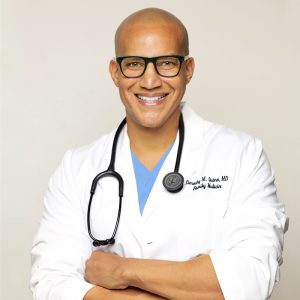As of April, there are nearly 200 certified medical cannabis practitioners – physicians, nurse practitioners or optometrists – registered with the Mississippi Department of Health. Practitioners with credentials are allowed to certify patients as eligible to purchase and use medical marijuana legally within the state.
Some medical practitioners are reluctant to get certified, so to help alleviate concerns, we asked two Mississippi physicians to share five things practitioners need to know about the program.
It is extremely important to have an established provider/patient relationship before prescribing medical cannabis.

Dr. Timothy Quinn, a family medicine practitioner in Ridgeland, Miss., is registered to certify patients for medical cannabis use. Quinn says it’s critical to have a relationship with a patient and to know that patient’s history to determine the best form of medical cannabis to recommend. “If a patient presents with asthma, you would have less of a probability to prescribe an inhaled form of marijuana and go with a different route of administration than smoking it,” Quinn said. “Or if the patient has a strong history of anything that would warrant problems if they use marijuana. The take home is … to have as much of a relationship with the patient as possible. That way when you are prescribing the marijuana you can do a better job.”
Continuing medical education is necessary to participate in the medical cannabis program.

Providers must complete eight hours of continuing medical education to initially register with the Department of Health before they can certify patients for cannabis use. Each year thereafter, certified providers must complete five more hours of continuing education for renewal. Dr. Lori Hill Marshall of Jackson, an anesthesiologist with fellowship training in interventional pain medicine, says she had a smaller learning curve than many providers in the state may have. “I always stay up to date on alternative therapy, so when Mississippi decided to launch medical cannabis I was already pretty well versed on how it was being used in other states for the treatment of chronic pain and other disease processing.” Interestingly, Marshall, who specializes in pain management, did not find pain as the most common reason her patients requested medical cannabis. “I think you probably have more cancer-based or neurologic-based diagnoses that are probably ahead of pain right now, from what I’m seeing. I think it’s being utilized for patients who are interested in non-opioid agents for
therapy or patients that have become tolerant to opioids and just would like to try something new to give their body a different mechanism for pain relief.”
Physicians should seek the guidance of their malpractice insurance carriers to help them integrate a certification into their established medical practice.
Physician providers are relying on medical malpractice carriers for advice when it comes to prescribing protocols. The problem with medical cannabis as a treatment is that the evidence base for establishing the appropriate dosing form and regimen is limited or simply non-existent for the range of approved conditions. However, the provider is still obliged to attempt to ensure that the care is appropriate, that it is monitored and that the outcomes achieved are consistent with best clinical practice.
Thus, providers need to consult their medical malpractice providers to figure out how to properly manage risk.
Demand for medical cannabis is not as common as predicted.
Quinn says Mississippi’s medical professionals do not need to worry about being overwhelmed by patients looking to get certified for medical cannabis use. “It’s not as popular as I anticipated. We have a few patients that want it, but it is not as overwhelming as I thought it would have been,” Quinn said. “I thought people would be more excited about it, but at the same time we are happy that we are able to offer it to our patients as an alternative to care, because at the end of the day, we want to give our patients every medical option that is available. I am assuming it will become more popular when people start getting it.”
Is becoming a prescriber an ethical or personal decision?
Both physician providers had advice for other medical professionals who might be considering becoming a medical cannabis provider. Quinn said, “We as physicians have a responsibility to our patients to provide them with the best healthcare we possibly can, and medical cannabis is just another option so that we have more options for our patients to achieve better health.” Marshall’s advice included, “Do your research and educate yourself on the best ways and safe ways to treat people with cannabis, which is not necessarily applicable for all patients in terms of the forms. Make sure that you’re tailoring your therapy for your specific patient, their disease processes and their tolerance level. And just make sure you’re educated about how to do so.”



























